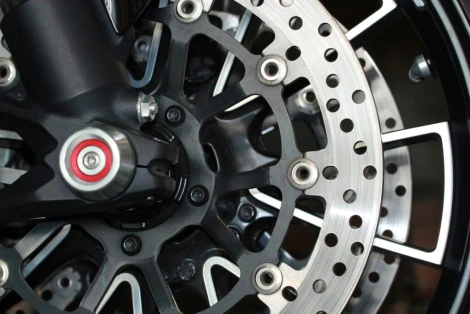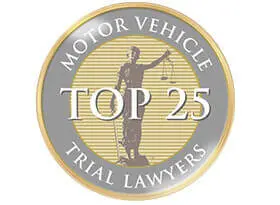
Nowadays, antilock braking systems are common on most newly manufactured motor vehicles. Unfortunately, ABS is not as common on motorcycles. Because May is motorcycle safety awareness month, we are outlining the safety advantages of having ABS on your motorcycle(s).
Practiced motorcyclists are aware of the dangers of unexpected braking while riding. Unfortunately, motorcycles cannot stop as quickly and seamlessly as multiple-passenger automobiles. Regardless of how experienced you are on a cycle, it is impossible to foresee another vehicle cutting you off or slamming on their brakes. In these circumstances, motorcyclists are forced to brake hard. Because most cycles’ brake controls are separate for front and back wheels, either of the tires can easily lock up if the driver has to brake hard. This locking up is not as simple as it would be in a passenger vehicle, where the car simply skids. On a motorbike, serious falls are often credited to drivers having to brake hard. Not only that, but roads being wet or covered in sand, grit, or rock only worsens the chances of a crash for motorcyclists.
In 2011, over 4,000 motorcyclists died on crashes. These types of statistics are what urge us to educate riders on the benefits of having antilock braking systems on their motorcycles. Cycles with ABS have a 31 percent lower rate of fatal crashes compared to those without. During testing, drivers are able to stop more quickly when the bike is equipped with ABS compared to drivers of bikes without this technology, regardless of the driver’s experience. The reason for this increased safety is that ABS continuously measures the speed of the bike’s wheels. There is a sensor that is able to determine when a wheel is about to stop turning. This allows the bike to adjust the pressure of the brakes much quicker than those bikes without ABS. There are no negatives to having ABS on a motorcycle, as it does not affect braking in normal circumstances, only emergencies, and the systems are very light, which causes no performance strain. To find out what motorcycle makes and models have ABS availability, visit www.iihs.org.
These ABS technologies are important because drivers of passenger vehicles typically have a harder time seeing motorcycles, as they are much smaller and can easily hidden in larger vehicles’ blind spots. Motorbikes also tend to look farther away in a vehicle’s mirrors due to its small size. Stopping distances is drastically impacted when road conditions are not ideal, such as wet or coarse surfaces. These reasons, as well as many others, only support the necessity of antilock braking systems on motorcycles throughout the state of Georgia.
Jones & Swanson has represented numerous motorcyclists who were victims of crashes involving larger passenger vehicles in the past. Most of these motorcycle-automobile accidents are much more devastating to the cyclist than to the passengers of the automobile. It is not only the responsibility of the motorcyclist to practice safe driving, but for other motorists to pay special attention to motorcyclists traveling near them on Georgia roadways. Drivers that do not see or use appropriate caution when a motorcycle is nearby can be held responsible for damages to not only the motorcycle, but for injuries and damages to the cycle driver as well. If you or someone you know have been injured in a crash due to another driver’s negligence, contact our office today for an evaluation at www.awjlaw.com or (770) 427-5498.









